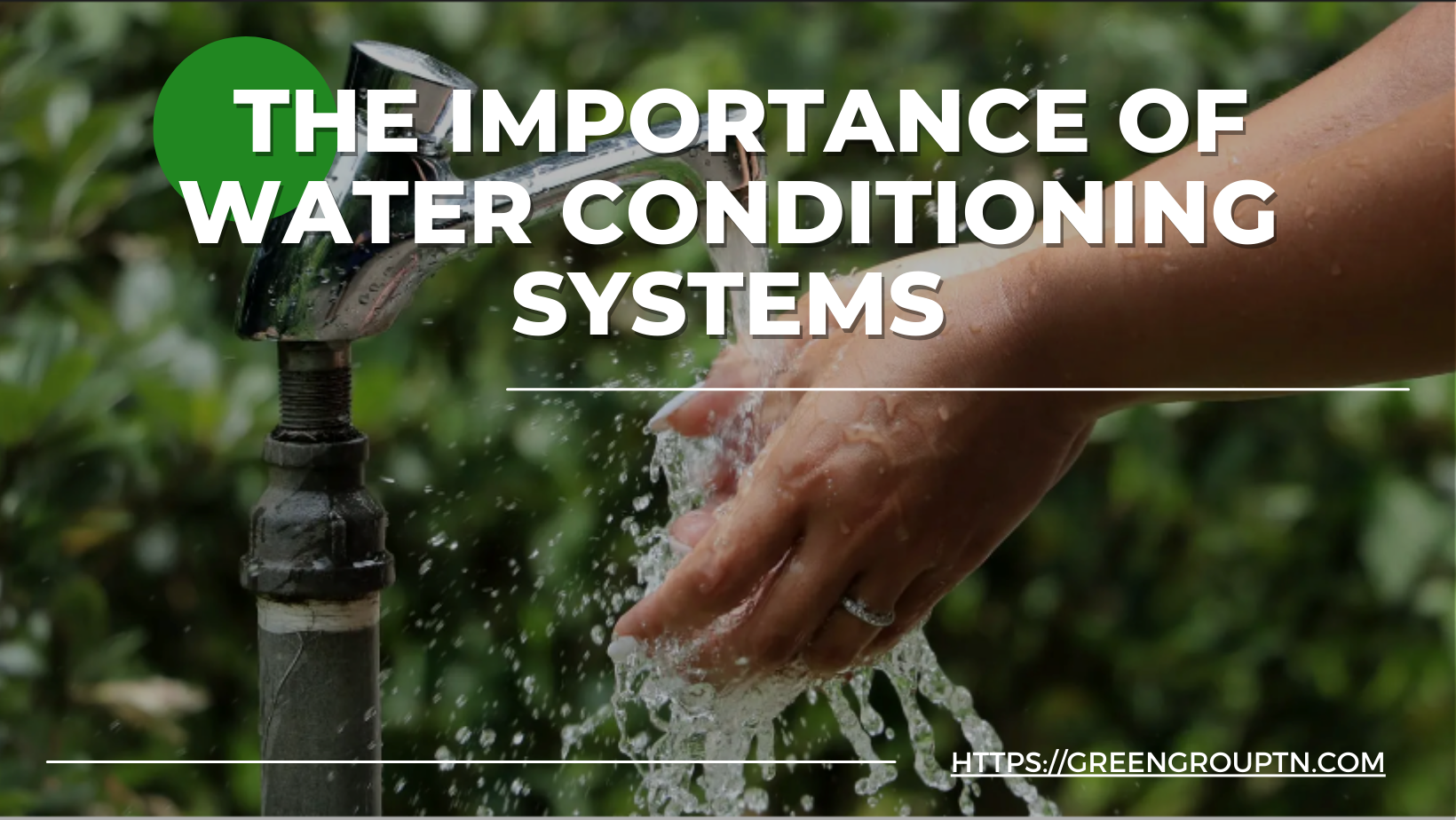When it comes to maintaining a healthy and efficient home, water quality often doesn’t get the attention it deserves. Many homeowners overlook the impact of hard water, which can wreak havoc on plumbing systems, appliances, and even personal health. Enter water conditioning systems—innovative solutions that address the challenges of hard water without altering its natural chemistry. If you’re considering improving your home’s water quality, understanding the benefits of water conditioning systems can help you make an informed decision.
What is a Water Conditioning System?
Water conditioning systems are designed to tackle the problems associated with hard water, which contains high levels of calcium and magnesium. Unlike traditional water softeners, which use salt to remove these minerals, water conditioners use physical methods to alter the properties of the minerals, reducing their tendency to cause scaling and buildup. This means that the minerals remain in the water but are less likely to cause problems.
Key Benefits of Water Conditioning Systems
1. Reduced Water Odor
One of the immediate benefits of installing a water conditioning system is the reduction in water odor. Hard water can cause scaling in pipes and fixtures, which can contribute to unpleasant smells. When combined with carbon filtration, water conditioning systems can also address other impurities that might cause bad tastes or odors, such as chlorine.
2. Improved Taste of Water
The quality of your drinking water is crucial, and a water conditioning system can significantly enhance its taste. By reducing the scaling effects and removing certain impurities, these systems help to provide cleaner, fresher water straight from the tap.
3. Longer Pipe Lifetime
Scaling from hard water can lead to the buildup of mineral deposits inside your pipes, which can restrict water flow and cause plumbing issues. Water conditioning systems help to minimize this scaling, thereby improving the efficiency and extending the lifespan of your piping systems. This leads to fewer repairs and maintenance costs over time.
4. Reduced Scaling
Scaling not only affects pipes but also impacts appliances such as dishwashers, water heaters, and coffee makers. By reducing scale buildup, water conditioning systems help to keep these appliances functioning efficiently and prolong their lifespan. This means you’ll spend less on repairs and replacements in the long run.
5. Softer Skin and Hair
Hard water can leave your skin and hair feeling dry and irritated. By conditioning your water, you can mitigate these effects, resulting in softer skin and more manageable hair. This is especially beneficial for those with sensitive skin or hair care concerns.
6. Low Maintenance
Water conditioning systems are designed to be low-maintenance, making them a convenient choice for busy homeowners. Unlike traditional water softeners that require regular replenishment of salt and ongoing maintenance, water conditioners generally need minimal upkeep. This ease of use adds to their appeal as a hassle-free water treatment solution.
Why Consider Water Conditioning Over Water Softening?
While water softeners have long been the go-to solution for hard water, water conditioning systems offer several advantages. Traditional water softeners use salt to remove calcium and magnesium from the water, which can create additional waste and require regular refilling of salt. Water conditioners, on the other hand, offer a salt-free alternative that alters the properties of minerals rather than removing them. This makes them an ideal choice for those looking to avoid the additional maintenance and environmental impact associated with salt-based systems.
Choosing the Right Water Conditioning System
Selecting the right water conditioning system depends on several factors, including the hardness of your water, the size of your household, and your specific needs. Here are a few considerations to help you choose the best system for your home:
– Water Hardness Testing: Before purchasing a water conditioning system, it’s important to test the hardness of your water. This will help you determine the most effective treatment solution.
– System Size: Choose a system that is appropriately sized for your household. Larger systems may be needed for homes with high water usage.
– Features: Look for systems with features that match your needs, such as additional filtration for removing chlorine or other contaminants.
– Professional Installation: Proper installation is crucial for the optimal performance of your water conditioning system. Consider hiring a professional to ensure that your system is installed correctly and operates efficiently.
Investing in a water conditioning system is a smart move for homeowners who want to improve water quality while reducing maintenance and environmental impact. By addressing the challenges of hard water without altering its natural chemistry, water conditioners offer a range of benefits that enhance both the functionality of your plumbing systems and the overall quality of your water.
Green Group is here to help those seeking expert advice and professional installation. Our team of experienced professionals can guide you through the process of selecting and installing the ideal water conditioning system for your home. Visit our website to learn more about our services and schedule a consultation today. Let us help you achieve cleaner, better-tasting water and enjoy the benefits of a well-maintained water system in your home.

